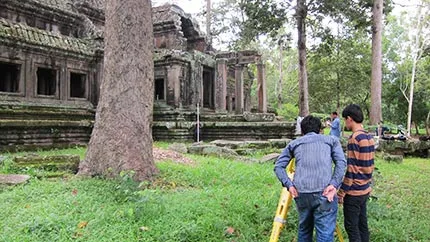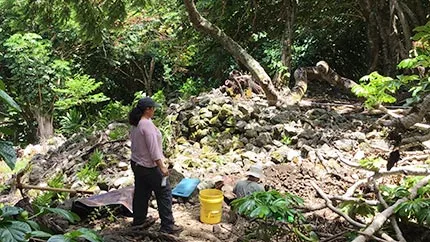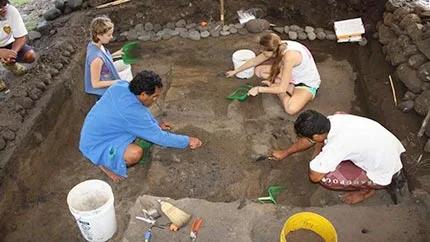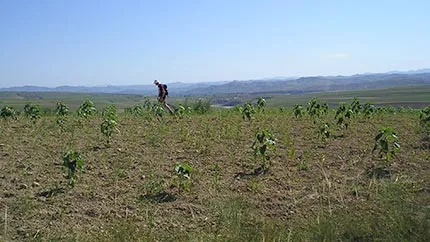Archaeology
Archaeology is the sub-discipline of anthropology that primarily explores human behavior through the materials left behind by past societies and cultures. Anthropological archaeologists explore a broad range of research topics, including the organization of past societies, human sustainability and resiliency, and cultural interactions. Archaeology is built on the principle that our knowledge of the past can help us build a better, more equitable future by recognizing through deep time how humans impact the environment and how inequality is created and perpetuated in societies. Active archaeologists work both in the field (e.g., survey and excavation) and in the laboratory (e.g., artifact geochemistry, botanical identification) across the world, investigating the time since our hominin ancestors initially made stone tools to the most recent past. Most archaeologists are employed by the private sector in cultural resources management, with a smaller proportion working in museums and universities.
Core Faculty
Related Courses
- ANTH 151: Emerging Humanity
- ANTH 204: Historical Ecology of Hawaii
- ANTH 210: Archaeology
- ANTH 323: Pacific Islands Archaeology
- ANTH 325: Origins of Cities
- ANTH 328: Food Origins, Food Culture
- ANTH 333: Climate Change and Cultural Response: Past, Present, and Future
- ANTH 379: Archaeology Practicum
- ANTH 380: Archaeological Lab Techniques
- ANTH 381: Archaeological Field Techniques
- ANTH 382: How Archaeology Works
- ANTH 424: Islands as Model Systems
- ANTH 461: Southeast Asian Archaeology
- ANTH 462: East Asian Archaeology
- ANTH 464: Hawaiian Archaeology
- ANTH 466: Quantitative Archaeology
- ANTH 471: Field Mapping
- ANTH 471: Ceramic Analysis in Archaeology
- ANTH 473: Lithic Artifact Assemblage Analysis
- ANTH 475: Faunal Analysis in Archaeology
- ANTH 477: Spatial Analysis in Archaeology



